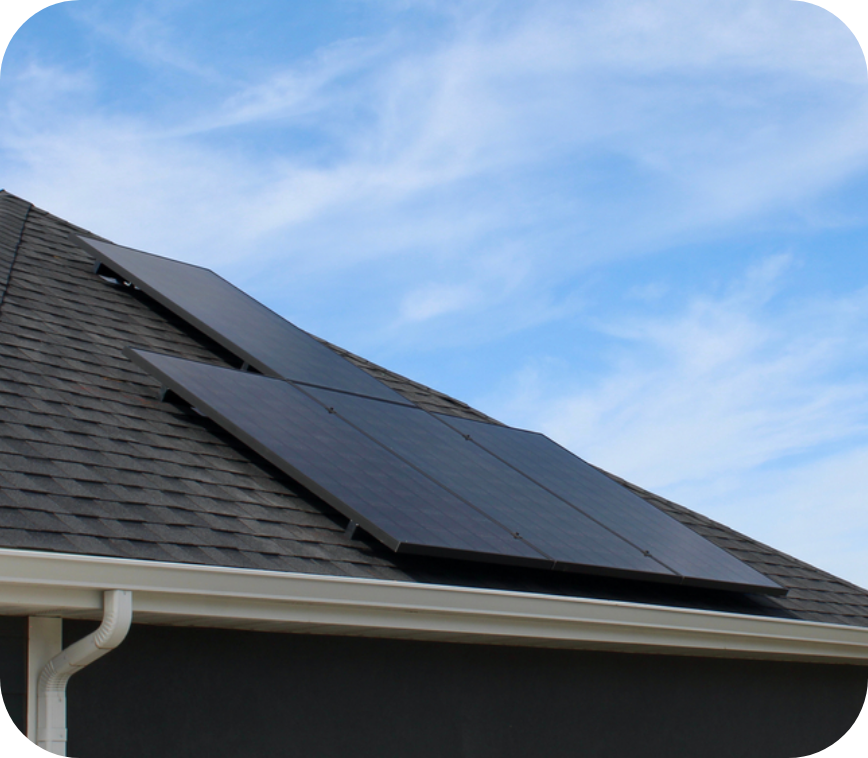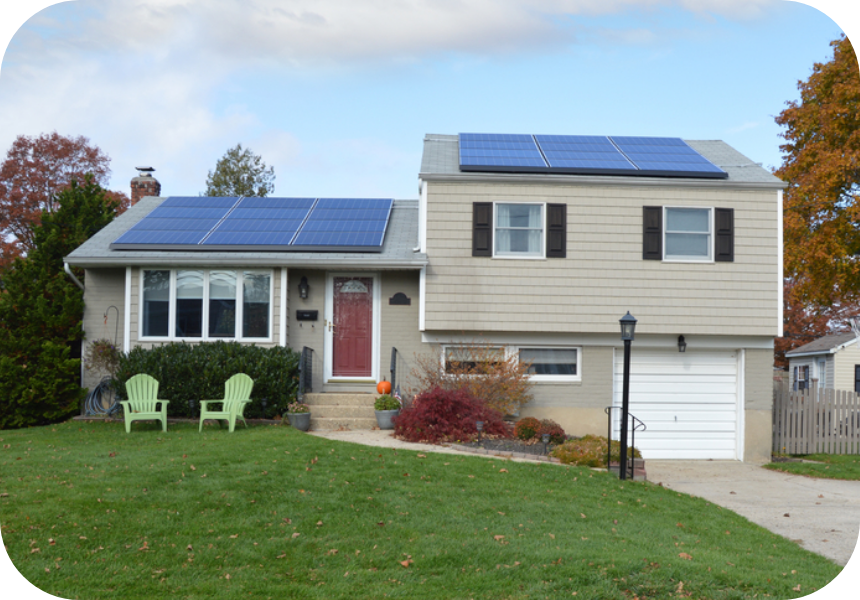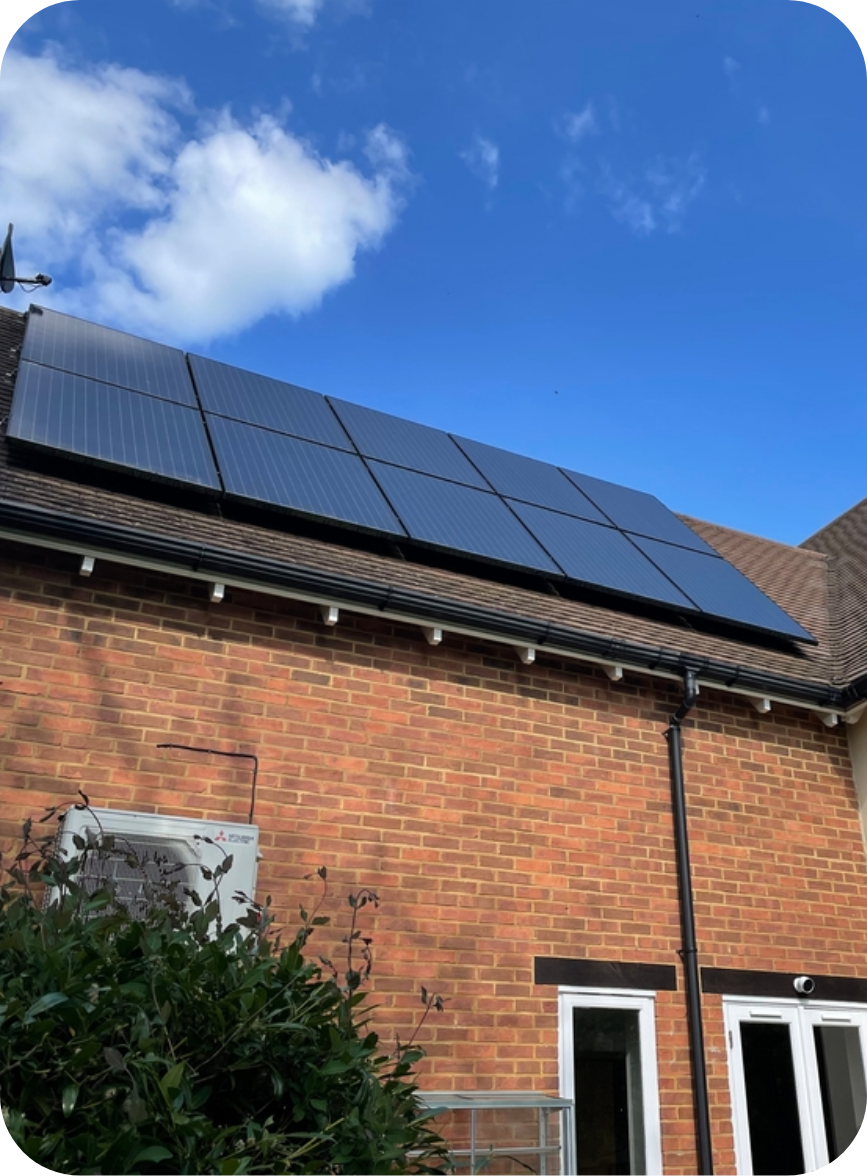Your Complete Guide to the Federal Solar Tax Credit
The solar investment tax credit (ITC), more commonly known as the federal solar tax credit, is the federal government’s way of encouraging homeowners to upgrade to solar energy. This credit allows homeowners to subtract 30% of their solar expenses from their taxes. It’s essential to take advantage of this valuable opportunity now, as it’s set to expire in 2035 unless Congress decides to renew it.
We’ve created this guide to demystify the federal solar tax credit and help you understand how to qualify and file it*. We want to make solar easy, so you can electrify your life and get the best deal on your home solar system. Continue reading to learn more!

*Disclaimer: The following is intended for informational purposes only and should not replace tax or legal guidance from a professional advisor. You should always consult with your own tax consultant, who can advise you according to your unique circumstances and local laws.
What is a Tax Credit?
A tax credit is a type of tax incentive that allows you to reduce the taxes you owe. So, if you claimed a $500 tax credit, you would subtract that amount from your total federal income taxes. The United States offers tax credits for being elderly or disabled, for having or adopting children, for saving for retirement, for tuition expenses, for having low income, for mortgage interest, and even for purchasing products that increase residential energy efficiency, such as solar panels.

What is the 2024 Federal Solar Tax Credit for Solar Panels and Batteries?
Now referred to as the Clean Energy Credit, the federal solar tax credit covers a part of the cost of a solar system by allowing you to subtract 30% of your solar expenses from your federal income tax. So if you purchased a solar system for $20,000, you would owe $6,000 less on your federal taxes.
The credit applies to all the costs of installing a solar power system within that tax year. Because there are no maximum claim amounts, this tax credit can save you thousands of dollars. Speak to a tax advisor to find out what you could save.
How Does the 2024 Solar Tax Credit Work?
Homeowners in the United States who have purchased their own solar system within the tax year will fill out Tax Form 5695, the form used to claim residential energy-efficient property credits. You’ll calculate the number of credits you qualify for and add the renewable energy credit information to Form 1040 to reduce your taxes.
Tax credits function differently from tax refunds, as they merely reduce your tax liability
Tax credits are different from refunds, serving to minimize or eliminate owed taxes. In some cases, the credit can be rolled over to the next year if you owe fewer taxes than the credit earns you. So if you owed $5,000 in taxes and your solar tax credit was $6,000, you could use the remaining $1,000 as a credit for the following year. Consult with your tax advisor to learn how this could work for your unique circumstances.


Work with a Tax Professional to Claim the Credit
For your own benefit, consider working with a tax consultant to ensure that you file the form correctly, minimize the risk of error, and maximize your deduction. They can also inform you about additional property tax exemptions or other incentives your state offers alongside the tax credit. California offers the Self Generation Incentive Program, for example, which gives you a rebate for energy storage installations. The Database of State Incentives for Renewables & Efficiency is a great resource for finding out what state tax credits and rebates are available in your area.
Am I Eligible for the Federal Solar Tax Credit?
Solar panels need direct sunlight to produce the energy needed for your home, so many people believe panels won’t work during inclement weather. However, solar panels can still produce energy on cloudy days as UV rays come through the clouds, though the amount produced is lower — by about 10% – 30% — due to less sunlight.
When you installed your solar panels
The qualifying window is between January 1, 2006, and December 31, 2034
The newness of the system
Only new solar systems can qualify; repurposed and reused equipment is excluded from tax credit eligibility
The location of your system
Must be installed at your US-based primary or secondary residence
The ownership of your system
You may only claim the credit if you own the system; leased equipment or systems installed through a Power Purchase Agreement do not count

What’s Covered by the Federal Solar Tax Credit?
The tax credit covers all of the following expenses:
Taking care of these issues is an easy way to ensure your solar panels can work properly.

Can I Claim the Credit if…
My Solar Panel is Installed on My US-Based Vacation Home?
Yes. You can claim the solar tax credit for multiple residences if you paid for the systems, but this doesn’t apply to solar systems placed on rental properties you may own. However, it might qualify for the business solar investment tax credit. Refer to the U.S.C. for more information.
I Have a Solar System, but it’s Not on the Roof?
Yes! It’s okay if the panels are not on your roof. As long as the panels on your property are generating power for your home use, you can still claim the credit.
I Use My Residence for Commercial Purposes?
Claiming the solar tax credit for a multipurpose dwelling can complicate matters. If you use the panels mostly for residential purposes, you can proceed normally in claiming the credit. However, if less than 80% of the system expense is residential, you may only use the residential expense to claim the solar credit on your tax return. The business portion of the cost may qualify for a business ITC, but you should consult with a tax expert in these cases.
My Solar System Has Been Financed?
Yes! Many people finance their solar systems through the seller to make it more affordable to purchase them. Once you’ve paid off the system, you’ll own it outright. If you have such an obligation to repay the seller in full, you can claim the tax credit for the entire amount of the system. Just remember that origination fees, extended warranties, and accrued interest cannot be applied to the tax credit.
Depending on your financing agreement and lender, you may also have the option to pay down your solar loan anytime in an 18-month period if you have the same amount of money on hand that the solar tax credit will eventually give you. When you apply this amount to the loan upfront, you might be able to lower your overall loan balance, payments, and interest rate and save money on the loan.
I Have Solar Panels, but They’re Not Installed?
No — your solar system must have been installed during the year in order for you to claim the tax credit.

Will Other Incentives Reduce My Federal Tax Credit?
Some incentives do not affect your tax credit, while others may reduce it slightly. Refer to the information below and visit dsireusa.org for updated information on incentives.
Electric to Solar Installation Rebates
Some utility providers often subsidize solar system installations that can be excluded from your income tax through a federal law exemption. The solar installation rebate should be subtracted from your total solar system costs before you calculate the solar tax credit. Say you upgraded to solar in 2024 for $20,000, but your utility provider provided a $2,000 rebate for the installation.
Here’s how you would calculate your tax credit:
($20,000 – $2,000) * 0.30 = $5,400
Renewable Energy Certificates and State Government Rebates
If you’ve received cash for renewable energy certificates, this is usually counted as taxable income. While this money will increase your gross income, it won’t reduce your solar tax credit. Rebates from your state government also generally won’t reduce your federal solar tax credit. If you paid $20,000 for a solar system in 2024 and the state gave you a $2,000 rebate, the tax credit calculations would look like this:
$20,000 * 0.30 = $6,000
State Tax Credits
If you get a tax credit from the state for a solar installation, it does not reduce your federal tax credit. However, you may end up with higher taxable income on your federal taxes with less state income tax to deduct. In essence, claiming a state tax credit means it will be subject to tax at the federal level.
Ready to Go Solar?
If you’re interested in possibly receiving the federal tax credit, it starts with getting a solar energy system installed on your home. At Axia Solar, we’re ready to help you through every step of solar panel installation to ensure you have the energy you need to energize your home. Contact our team today to get started.